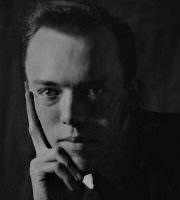About John Gould Fletcher
John Gould Fletcher (January 3, 1886, Little Rock, Arkansas – May 10, 1950) was an American poet-imagist. The first poet from the southern United States to win a Pulitzer Prize for Poetry, he is also considered an authority on the subject of modern painting. He was the author of many poetic collections such as Goblins and Pagodas (1916), Japanese Prints (1918), Selected Poems (1938) and The Burning Mountain (1946). In 1913, Ezra Pound in his journal New Freewoman praised him for the individuality of rhythm in his first book of poetry. These works include Sand and Spray (1915) and Goblin and Pagodas (1916). 'No one masters the rhythm of free verse better than him,' said Amy Lowell about his works. In return, Fletcher notably coined the term 'polyphonic prose' to describe certain experimental poems by Amy Lowell, prose that he himself experimented with in Goblins and Pagodas. He ended up returning to more traditional poetic forms in his later works, which notably included The Black Rock (1928), Selected Poems (1938) for which he won the Pulitzer Prize for Poetry in 1939, South Stars published by Macmillan (1941) and The Burning Mountain (1946).In September 1908 the young American poet, John Gould Fletcher (1886-1950), left Harvard University for Europe. In his autobiography, Life Is My Song (1937), Fletcher explains the reasons for his pilgrimage:
I had come abroad to try to acquire an education, to learn something concerning the aesthetic, moral, and spiritual values by which man was made worthy of the world he lived in, and which had created man's highest civilizations.. Were there values in Europe, were there values anywhere in the world, which were living and functioning vitally in sufficient strengch, to enable me to build up anything from my own American background, to make anything more of myself than a complete failure of adjustment to the standards of my country and my people? I had come to Europe, at all events, to find out. And I knew from the outset that my exile would be neither a short nor an easy one.Fletcher here articulates some of the motives that impelled idealistic poets of his generation into self-exile: a profound alienation from contemporary America, an uncertain sense of identity, a yearning for permanent aesthetic and spiritual values, and a readiness to search for such values in the great centres of European civilization. In London Fletcher found, if not the grail of his quest, at least a congenial company of like-minded seekers. By 1910 he had joined the Guild Socialist movement, and by 1914 he was engaged in the poetic revolution known as Imagism. Fletcher's progress exemplifies the interaction of European and American energies that gave rise to modernist poetry in English during the early decades of the twentieth century. The innovative, experimental verse that helped to shape the sensibility of several succeeding generations grew out of a restless, dynamic nexus of international contacts. With these transatlantic connections in mind, scholars sometimes characterize the revolution in the arts of the period as International Modernism'. Fletcher suffered from depression and on May 10, 1950, he committed suicide. He is buried at historic Mount Holly Cemetery in Little Rock, and a wing of the Central Arkansas Library System has been named after him.
Browse all poems and texts published on John Gould Fletcher









